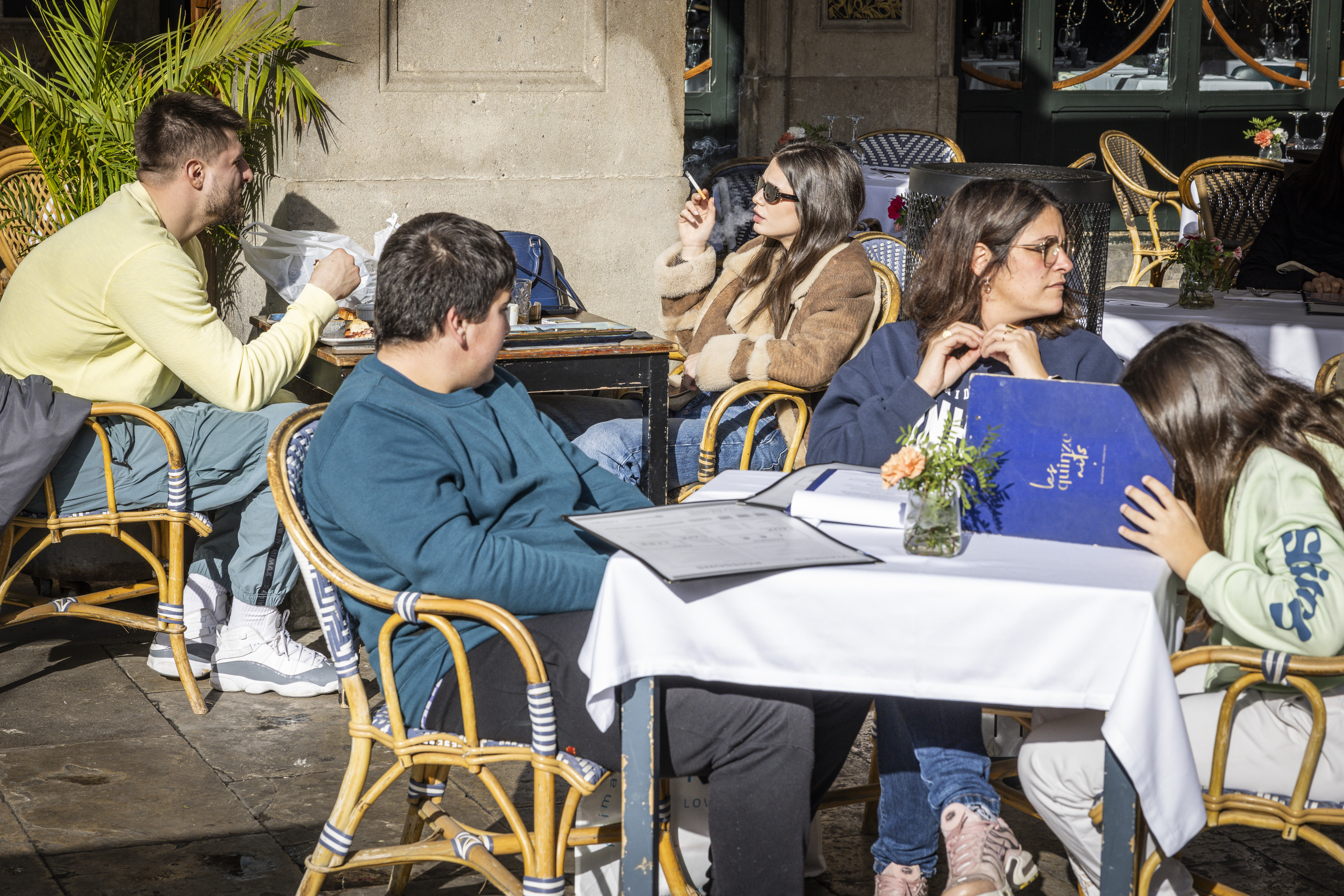The Federation of Residents' Associations of Barcelona (FAVB) is promoting, together with other groups, a public initiative for an "in depth" review of the city council's regulations on bar and restaurant terraces, including aspects such as locations, timetables, capacity and fines for rule-breakers. In a presentation this Monday morning, the body that groups together all the city's neighbourhood organizations has defended that the growth in the space occupied by terraces has been "exponential" in recent years and this has generated several problems, of social coexistence and related to such issues as noise, for example. For its part, the city's Guild of Restaurateurs has come out in response to the request, criticizing "the FAVB's anti-terrace obsession".
Specifically, the FAVB wants a new set of regulations that propose a "fairer and more reasonable" distribution of streets and squares. That is why it defends a rethink to return to a situation in which bar and restaurant businesses are "friendly to the neighbourhood and compatible with the daily life of workers", while regretting that the massification of tourism, the arrival of large restaurant chains, speculation and the internationalization of Barcelona have "pressured" the sector and have produced major changes, including the use of public space for outdoor bar tables and seating. For this reason, the residents' grouping has defended that given the limited amount of public space in this densely built-up city, the priority should be the residents, and the activity of restaurant businesses should be secondary.
In this regard, the FAVB regrets that the gone from 2,200 terrace licenses in the year 2000 to almost 7,000 this year and that the number of tables per terrace license has also increased, from an average of less than four per terrace in 2000 to five in 2022. According to the FAVB proposal, the new ordinance should reconsider the locations and spaces occupied by terraces in accordance with the dimensions of the establishments and discriminating between the use of sidewalks and space reclaimed from the road itself. In addition, they assert the need to evaluate locations and impacts with prior reports on acoustic impact, mobility and other aspects that may derive from it. Terrace hours that are "compatible with the daily life and need for rest of the neighbourhood" should also be established, especially on weekdays.
Likewise, the associations propose to recover the declaration of individualized arrangements to find a territorial solution to problems that have become chronic for years in some parts of the city. In addition, the new rules should include guarantees of autonomy, equal opportunities and non-discrimination against people with disabilities, as marked by the new Catalan accessibility code. As well, the residents' groups demanded an effective sanctioning regime that penalizes repeat offenders, as they say that it is the repeat-offender establishments that generate the most conflicts. Finally, they proposed that the terraces are should be healthier spaces and that is why the ordinance should incorporate the ban on smoking there.
Restaurateurs remember that a similar initiative "failed"
For its part, the restaurant owners' body reacted to the request of the FAVB by recalling that the federation has already launched a similar public initiative in 2018, which "failed miserably" because it did not reach the necessary 15,000 signatures to move the project forward. In addition, it assured that several aspects raised by the body were already addressed in the review of the regulations made in 2018, such as the location of terraces, hours and the fines regime. The guild also denied that the current regulations do not comply with the accessibility needs for people with reduced mobility and considered it "indecent" that the federation "attempts to confuse and deceive the public" on this issue.
For the businesspeople of the guild, the FAVB has an "obsession against terraces" and has compared this with the concerns shown in the municipal barometer of Barcelona residents' views, in which law and order and cleanliness are major concerns. For this reason, they have asserted that the FAVB "lives in a parallel universe, unrelated to the real concerns of the people of Barcelona".

